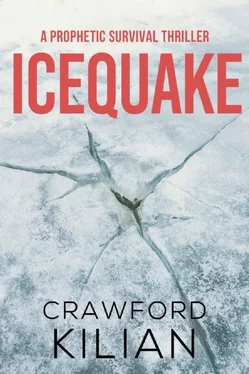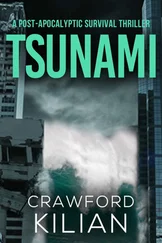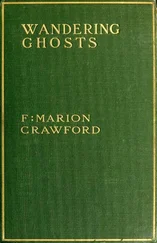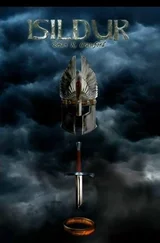Crawford Kilian - Icequake - A Prophetic Survival Thriller
Здесь есть возможность читать онлайн «Crawford Kilian - Icequake - A Prophetic Survival Thriller» весь текст электронной книги совершенно бесплатно (целиком полную версию без сокращений). В некоторых случаях можно слушать аудио, скачать через торрент в формате fb2 и присутствует краткое содержание. Год выпуска: 2017, Издательство: Venture Press, Жанр: Фантастика и фэнтези, Прочие приключения, на английском языке. Описание произведения, (предисловие) а так же отзывы посетителей доступны на портале библиотеки ЛибКат.
- Название:Icequake: A Prophetic Survival Thriller
- Автор:
- Издательство:Venture Press
- Жанр:
- Год:2017
- ISBN:нет данных
- Рейтинг книги:4 / 5. Голосов: 1
-
Избранное:Добавить в избранное
- Отзывы:
-
Ваша оценка:
- 80
- 1
- 2
- 3
- 4
- 5
Icequake: A Prophetic Survival Thriller: краткое содержание, описание и аннотация
Предлагаем к чтению аннотацию, описание, краткое содержание или предисловие (зависит от того, что написал сам автор книги «Icequake: A Prophetic Survival Thriller»). Если вы не нашли необходимую информацию о книге — напишите в комментариях, мы постараемся отыскать её.
Icequake: A Prophetic Survival Thriller — читать онлайн бесплатно полную книгу (весь текст) целиком
Ниже представлен текст книги, разбитый по страницам. Система сохранения места последней прочитанной страницы, позволяет с удобством читать онлайн бесплатно книгу «Icequake: A Prophetic Survival Thriller», без необходимости каждый раз заново искать на чём Вы остановились. Поставьте закладку, и сможете в любой момент перейти на страницу, на которой закончили чтение.
Интервал:
Закладка:
Crawford Kilian
ICEQUAKE
To all the Kilians, and to the memory of James De Mille (1833-1880), Canada’s first explorer of the fabled Antarctic.
New Shackleton Station Personnel, January 1985.
Major Hugh Adams, 50, (NZ), Base Leader
Dr Carter Benson, 38, (UK), Assistant leader, geophysicist
Penelope Constable, 32, (US), Journalist
Dr Ray Crandall, 35, (CAN), Computer operations
Suzy Dolan, 37, (AUS), Assistant cook
Terence Dolan, 38, (AUS), Cook
Gordon Ellerslee, 32, (CAN), Drilling engineer
Dr Will Farquhar, 29, (UK), Glaciologist
George Hills, 42, (CAN), Carpenter
Dr Steven Kennard, 34, (CAN), Seismologist
Reginald Lewis, 29, (AUS), Electrician
Sean McNally, 27, (UK), Climatologist (student)
Alfred Neal, 44, (US), Pilot/aircraft mechanic
Dr Herman Northrop, 41, (CAN), CANDU reactor operations
Howard O’Rourke, 28, (CAN), Vehicle driver/mechanic
Simon Partington, 30, (NZ), Vehicle driver/mechanic
Dr Gerard Roche, 33, (CAN), Geophysicist
Bruce Robinson, 26, (AUS), Radio operator/technician
Dr Colin Smith, 37, (AUS), Meteorologist
Jeanne Taylor, 23, (NZ), Glaciologist (student)
Donald Treadwell, 39, (UK), Stores clerk
Timothy Underwood, 27, (CAN), Seismologist (student)
Dr Katerina Varenkova, 42, (USSR), Physician
Thomas Vernon, 38, (NZ), Diesel mechanic
Dr Benjamin Whitcumb, 30, (US), Palaeontologist
Dr Max Wilhelm, 40, (NZ), Geologist
Roger Wykstra, 29, (AUS), Radio operator/technician
Chapter 1 – Shacktown
Penny Constable woke up suddenly and looked at her wristwatch. The glowing orange light-emitting diodes told her it was 0503 hours, Thursday, February 7, 1985. With any luck, it would be her last day in Shacktown.
The cubicle was dark. In the bunk below, Jeanne Taylor moved restlessly in her sleep. The hut’s humidifier was whining away in the corridor outside, but the air was still too dry for comfort; Penny’s nose was stuffy, and her tongue felt thick. She reached up to touch the cold, rough plywood ceiling. A few metres above the roof of the hut were the curved steel plates that covered Tunnel B, and above that was the empty whiteness of the Ross Ice Shelf. To the right and left of Tunnel B, separated by metres of solid ice, were the other tunnels of New Shackleton Station; to walk the full length of the station, from the end of the snow mine to the doors of the hangar, took only five minutes. After thirty-seven days here she knew every square centimetre of the place, and she hated it all.
Insomnia in the Antarctic was usually a problem only for people wintering over. The weather had been so bad, though, throughout this austral summer, that almost no one had been able to get outside. Over half of Shacktown’s normal summer population hadn’t even arrived this year: bad weather and impossible radio conditions had forced many scientists to postpone their projects, and many of those who had managed to reach the station were stymied by lack of equipment or support personnel. Penny and Jeanne, a student glaciologist, had waited in Christchurch for over a week last December before a break in the radio blackout had enabled their Air New Zealand DC-10 to leave for McMurdo Station; thanks to the same break, Shacktown had sent its Twin Otter to McMurdo to pick up the two women and some supplies.
Since New Year’s Day, however, the radio blackout had continued almost without a pause, and ‘katabatic’ winds, raging down the glacier valleys from the polar plateau, had brought day after day of Condition One: blizzards, bitter cold and whiteouts. Only Gerry Roche and Carter Benson, the geophysicists, had been happy to observe the massive solar flares and resulting magnetic storms that had caused the radio blackout and even knocked out polar-orbit communications satellites.
Blackouts, whiteouts. And a handful of grey-faced troglodytes trapped under the ice.
Penny could still savour a sour enjoyment of the irony of her predicament. As a little girl in Connecticut she’d loved being snowbound, safe inside the artificial worlds of her home and a book, knowing that outside was a cold anarchy held at bay. So when the Ottawa office of the Commonwealth Antarctic Research Programme had asked Science Progress magazine for a staff writer to visit New Shackleton, she’d asked at once to be sent. Even the bad political climate between the US and the rest of the Western world hadn’t discouraged her. CARP was doing important work, after all, work that was almost unreported in the States; she’d be the first American journalist in years to cover the story.
Penny turned in her sleeping bag, trying to find a warm spot. A fat lot of good she’d accomplished. The only really big story had been the Roche Event in early January, when the earth’s magnetic field had abruptly vanished and then begun to grow again, reversed in polarity. She still remembered Gerry Roche’s expression when his magnetograph had begun to trace straight lines, like the last cardiogram of an old friend. But that story would be ancient history by the time she got home.
There was Steve Kennard’s work, of course. The Canadian seismologist had confirmed the fact that East and West Antarctica stood on separate plates of the earth’s crust, with the boundary between them running through the Transantarctic Mountains. But he also believed a major earthquake was due somewhere in those mountains (despite the fact that Antarctica was known to be seismically quiet) — and he even thought such a quake might cause a surge of the ice sheet into the Southern Ocean. Good material for the National Inquirer , maybe, but not for a serious science magazine. Steve hadn’t been very helpful, anyway; he was suspicious that someone like Penny would sensationalise his theories before he’d published them in some bastion of orthodoxy like Nature .
Even that story wasn’t really new. In her already-packed kit bag Penny had a draft article in which she pointed out that ice-sheet surges had been talked about since the early 1960s; people in the US Defence Department had even discussed the idea of starting such a surge with hydrogen bombs. If the theory had appealed to the people who’d given the world Vietnam, Chile and the Bay of Figs, it was pretty surely nonsense.
What else? The Shelf Drilling Project? That was just a rerun of what the Americans had done back in the 70s. Will Farquhar, the station’s glaciologist, and Jeanne had learned a lot about the Shelf and the almost lifeless sea beneath it. but nothing really surprising.
Ben Whitcumb’s fossils? Great, if you really cared about therapsid populations in the Permian West Antarctic. She was being unfair, she knew; Ben, the sole American scientist here, was a prick, an all-too-typical modern US careerist right down to his crewcut hair and right-wing politics. His sermons on President Wood and the official American policy of Dynamic Self-Reliance had been as boring as his lectures on therapsid endothermic ability. Ben was the kind of scientist she’d come here to escape.
There was Herm Northrop, the Canadian engineer who kept the whole operation going with his CANDU reactor. Sure, it was controversial. The reactor was too powerful for the station’s needs; the Canadians had supplied it — and Herm — more for propaganda than in the interests of research. But it was still an elegant, exquisitely automated feat of high technology, and Herm had been glad to explain it to her. She felt good about the article she’d written on him and the CANDU.
After that, though, Shacktown offered only human-interest stories: Terry and Suzy Dolan, the Australian cooks who squabbled all day and screwed all night; Katerina Varenkova, the Russian exchange physician who chain-smoked Rothmans, beat everyone at chess and was homesick for Vostok, the Soviet base where her husband Ivan was this year’s station leader; Al Neal, Shacktown’s pilot and chief aircraft mechanic, an ex-US Navy flyer who’d been down here on the ice for over ten years — the Antarctic equivalent of a bush pilot; Don Treadwell, Shacktown’s only black, a Jamaican whose chief purpose was to prove that the Commonwealth still included some non-white nations, but who was nonetheless an extremely competent stores clerk and a man who didn’t need the crutch of machismo that most of the others hobbled around on. They were good people, interesting people, but Science Progress didn’t want character sketches.
Читать дальшеИнтервал:
Закладка:
Похожие книги на «Icequake: A Prophetic Survival Thriller»
Представляем Вашему вниманию похожие книги на «Icequake: A Prophetic Survival Thriller» списком для выбора. Мы отобрали схожую по названию и смыслу литературу в надежде предоставить читателям больше вариантов отыскать новые, интересные, ещё непрочитанные произведения.
Обсуждение, отзывы о книге «Icequake: A Prophetic Survival Thriller» и просто собственные мнения читателей. Оставьте ваши комментарии, напишите, что Вы думаете о произведении, его смысле или главных героях. Укажите что конкретно понравилось, а что нет, и почему Вы так считаете.












